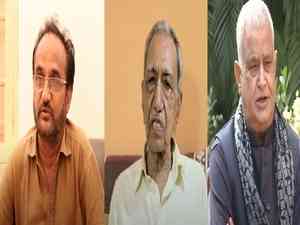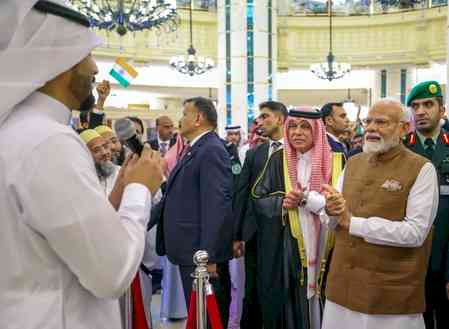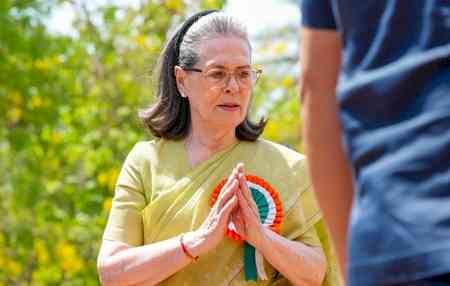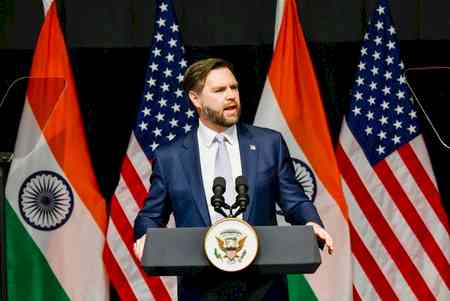50 years after Emergency, victims recall what all PM Modi did to fight the 'dark era'
The Bharatiya Janata Party (BJP) observed 'black day' on Tuesday to mark the 50th anniversary of the Emergency imposed by Indira Gandhi-led Congress regime on June 25, 1975.

New Delhi, June 25 (IANS) The Bharatiya Janata Party (BJP) observed 'black day' on Tuesday to mark the 50th anniversary of the Emergency imposed by Indira Gandhi-led Congress regime on June 25, 1975.
PM Modi led the charge in slamming the Congress party for the Emergency and said: "The #DarkDaysOfEmergency remind us of how the Congress Party subverted basic freedoms and trampled over the Constitution of India, which every Indian respects greatly."
However, the fight against unilateralism and dictatorial attitude of the then Congress government was resisted by PM Narendra Modi in his early twenties, also.
As a RSS Yuva Pracharak, PM Modi stood against the oppressive regime and proved instrumental in resisting the Emergency. Many eyewitnesses and victims of the Emergency have narrated how their privacy was breached, rights snatched during the period and how a young Narendra Modi resorted to various means to oppose and foil it.
Ajit Singh Gadhvi, recalling the horror of the Emergency, says that PM Modi used to travel across the country by concealing his identity.
He went to Punjab, dressed up as a 'Sardar' and sought to mobilise people against the Emergency.
Kirodilal Meena, the BJP leader recalling his meeting with PM Modi for the first time during Emergency days, says that he often visited Gujarat to collect anti-Emergency literature.
He further says that it was PM Modi, who, while staying underground, looked after the publication and proliferation of anti-Emergency literature across the country.
Rajan Dayabhai Bhatt gets emotional while sharing his story. Remembering the times, he says that he was very young at that time and his mother was alone. He informs that Narendra Modi would often visit his house and assure his mother on not worrying about basis essentials.
Devgan Bhai Lakhia, sharing his memory of the Emergency, says that Narendra Modi devised a special plan to evade the police while also keeping the crusaders connected. He says that during those days, telephones in Gujarat used to have 5 digit numbers.
Narendra Modi invented a unique plan of getting last two digits reversed as this would be a signal for the anti-Emergency forces to unite.
Dr. R.K. Shah narrates how Narendra Modi served a common fulcrum for all anti-Emergency voices, irrespective of their political affiliations.
He says that all arrangements for meetings and deliberations were held in Ahmedabad, despite him staying underground.
Kantibhai Vyas showers praise on the RSS for its valiant fight against the 'dark era' of Democracy and narrates Narendra Modi's pivotal role in reversing the Emergency.
Nagar Bhai Chawada says that RSS was banned during Emergency.
He says that the oppressive forces infringed upon the basic rights but there also ran a parallel movement to stall it and Narendra Modi was one of the key figures behind this movement.
He used to impersonate as sadhu and don other roles too to evade police lens. Nagar Bhai also shares his own instance of doubling up as the son of Power Minister Markand Bhai Desai, on one of the missions.
Prakash Mehta recalls the various facets of Narendra Modi during those days. He says that PM Modi donned many roles during the dark period and visited his house often, sometimes dressed as Sadhu, sometimes as Sardar.
"Interestingly, many wouldn’t know about the roles assigned to them until it was achieved," he reminisced while informing about how the literature published in Gujarat was ferried to other states to fan the fire against Congress-imposed Emergency.
Rajiv Dave recollects the incident of Narendra Modi being dressed as sardar and also conversing with fellow sardar auto driver to reach the desired destination.
Later, he told the driver that as he was brought up in Gujarat, he lacked the good spoken skills in Punjabi.
Rohit Bhai Agarwal shares a story of how an impersonated Narendra Modi and police came face to face but the latter did not get a whiff of him.
"Police asked about the whereabouts of Modi, we said we don't know and then my brother dropped him to his destination."
Vishnu Pandey recalling a meeting of March 12 says that he along with Narendra Modi and Shankarsinh Vaghela were all present at an important meeting.
"We all were given important responsibilities," Pandey said. Sharing a particular incident of Bhavnagar prison, housing about 200 inmates, he says that Narendra Modi came there, distributed food materials and spoke to many of them for almost an hour. For hours, many didn’t know that the man they met was Narendra Modi.
--IANS
mr/pgh


 IANS
IANS 










